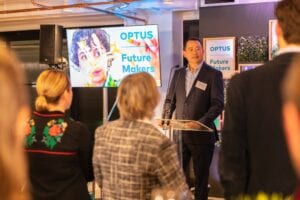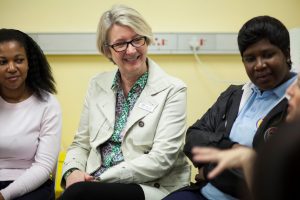Jolt.
Knock.
Impress.
Influence.
Sway.
These are all synonyms for the word ‘impact’. In simple terms, to make an impact is to make an impression. In social impact terms, it is to make a lasting impression on social and environmental issues that are important to communities. Making an impact is a key component of corporate social responsibility (CSR) engagements that corporations use to seek to ensure sustainable models of change. And rightly so. If corporates pursue social impact without jolting, knocking, impressing, influencing or swaying the communities in which they work, how much difference can they hope to make?
I am personally passionate about CSR and sustainable models of corporate engagement and I am keen to hear more about how the pan-Asian social impact membership organization AVPN will ensure a clear and compelling focus on corporate impact at its 2019 Conference. A preliminary look at what some of its members are doing in this area is motivating.
Supporting Best Practices
According to Allison Hollowell, AVPN Chief Strategy Officer, “The private sector is uniquely positioned to address social and environmental challenges of our time. Companies around the world increasingly expand their tools from traditional CSR towards striving to achieve a dual bottom line of profit and social good. While environmental, social and governance (ESG) reporting is becoming the norm for listed companies around the world, the Sustainable Development Goals (SDGs) assume a critical role for companies worldwide to play. There is a myriad of approaches that companies can choose from such as inclusive business, shared value, corporate sustainability, responsible business and B Corps status”.
Some of the questions AVPN asks companies in order to better support best practices and provide insights on how they can get started in defining its social impact strategies are:
- How can companies navigate these options and select the most appropriate one in alignment with their core business?
- How can companies develop an effective social impact strategy?
- How can companies align their business to the SDGs framework?
One of the ways AVPN will support social impact at the Conference is with a disaster tech competition it developed with Prudence Foundation to crowd-source innovative tech solutions through a competition, which aims to create a platform to showcase and raise the awareness of technology aimed at saving and protecting lives from natural disasters – all aligned with Sustainable Development Goals (SDGs) 11 and 13. The five finalists have gone through three rounds of review by capital, tech and disaster experts, who collectively assessed the most impactful and scalable tech solutions and will be presenting their innovations at the conference.
Bringing Unique Capabilities

As a major telecom and ICT player in technology and innovation, the Singtel Group believes that it can bring unique capabilities and approaches to creating long-term sustainable growth and positive impact for the business and the communities in which it operates. With that in mind, Singtel Group started a social innovation program four years ago called Future Makers that aims to build and support an ecosystem of change agents, innovation, capacity building and collaboration for vulnerable communities. Buay highlights the multiplier effect of utilizing a company’s distinct skills: “We saw an opportunity to leverage our technology and innovation to help transform and build a new ecosystem for greater and more sustainable social impact”.
People Who Power the Way

Johnson & Johnson found that when it increased its investments in women, it was able to deliver greater outcomes not only for women but their families and whole communities. “When we took a closer look at all the support systems and interventions at every stage of a woman’s life, we realized that there was one constant: a health hero who supports…, guides her through pregnancy and delivery, and helps her to become the best mother she can be”, reveals Moore. “That is why we focus our efforts on ensuring frontline health workers – the nurses, midwives and community health workers who power our health systems around the world – are competent, confident and empowered to be the leaders we need to achieve health for all”.
Moore is clear that social impact can be done by all.
Moore inspires us to believe that we can all make a difference, whatever our sector, background or personal history. “I fundamentally believe we all have something to contribute and right now, mine is unlocking ways to help under-represented cadres of health heroes thrive. I challenge everyone to find ways to unlock the best in them to bring out the best in others”.
See you at the AVPN Conference 2019 on 25-28 June with speakers from the Prudence Foundation, Singtel Group, Johnson & Johnson as well other AVPN corporate members that are ensuring impact is integrated into their business such as Grab, Unilever and Danone.


















